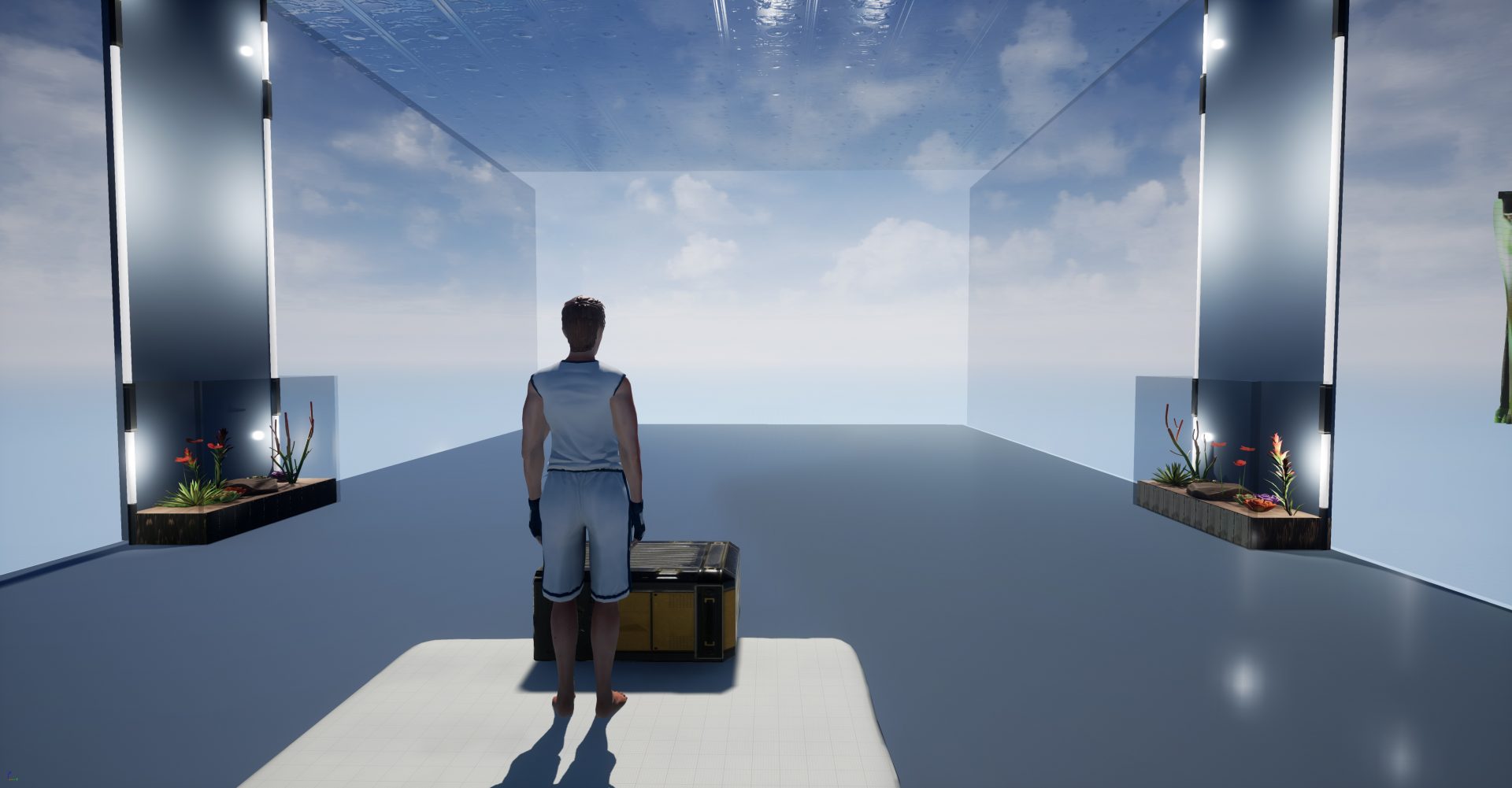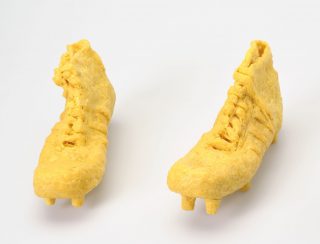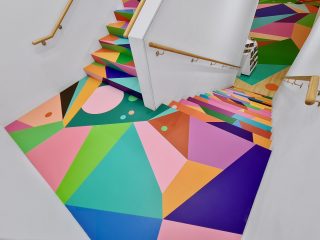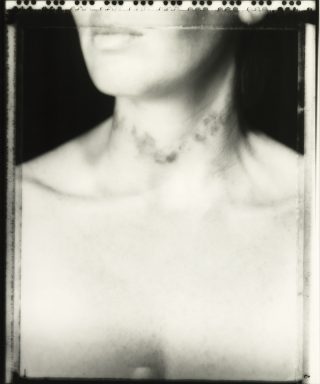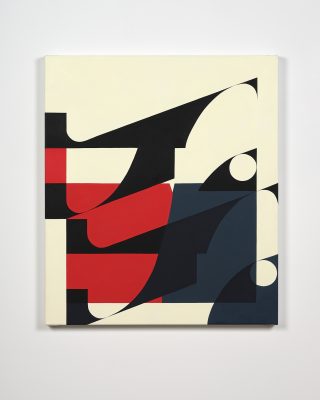Aotearoa artist James Wylie uses video to examine the nature and consequences of contemporary technologies. His works tend to combine real-world footage with digital animations of his own creation, hinting at overarching narratives, while resisting straightforward interpretation. At times, Wylie foregrounds the close interaction between humans and computers, or between natural and artificial intelligences. Giovanni (2018), for instance, centres on a computer-generated figure coded to imitate the expressions of actors from Pier Paolo Pasonlini’s 1964 film The Gospel According to Saint Matthew. The mimicry is less than wholly convincing, a state of affairs that might seem to highlight the complexity of human expression. However, the figure’s limited range also recalls the hammy performances of the earliest cinema, suggesting that machine learning is not so far from its human equivalent. Opting for an animation style that feels anachronistic, despite its comparatively recent development, Wylie emphasises the accelerating rates at which powerful technologies emerge and existing ones become obsolete.
Other works concentrate on the effects of living in a digitally mediated world. In recall (2018), the viewer moves through a computer-generated terrain, after the fashion of a first-person role-playing video game, stumbling across images as diverse as Jacques-Louis David’s painting The Death of Socrates (1787) and a screenshot of a Facebook feed filled with current affairs videos. Wylie points not only to the profusion of content that daily assaults us, but also to the increasingly slippery and hybrid nature of our experiences. He seems to ask what we might properly understand as real versus fictive, what physical versus virtual. A similar porosity of boundaries is present in refresh (but none of us know what a city is) (2018), in which disparate animations of water overlay a digital scene of an estuary-like landscape gradually being inundated. Here, the deluge of the digital is explicitly related to climate change. Wylie alludes to the fact that nothing is truly intangible. Every online experience depends on a device, a server farm, an electricity grid; each carries a cost and leaves a trace.
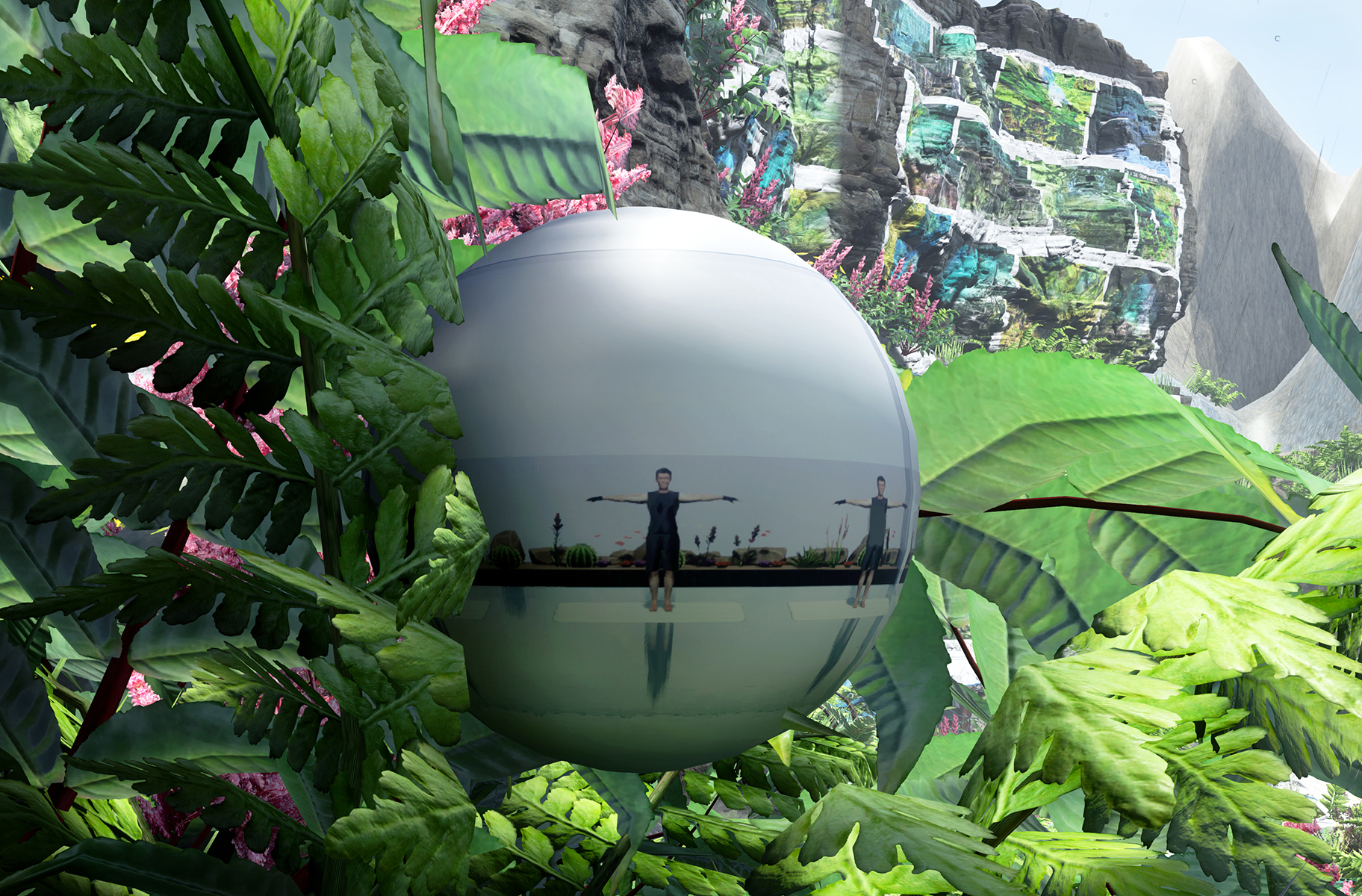
James Wylie, //drift (video still), 2019. Commissioned by Deadly Ponies for Projects 2019: Whanaungatanga at Auckland Art Fair. Image courtesy of the artist.
Traces also figure in drift// (2019), an installation commissioned by Deadly Ponies and produced in collaboration with sculptor Hannah Valentine. Wylie’s video includes an avatar working out in a transparent room high in the sky, a space at once seductively elegant and troublingly sterile. Below is a lush, computer-generated terrain that at first appears a virtual utopia. No people are visible. However, there are vestiges of habitation. It remains unclear whether the absence of the human being is by choice or necessity, whether the space is intended to suggest our increased disinterest in the natural environment in the present, or a potential future. Whatever the case, Wylie’s video encourages us to reflect on the current epoch in geologic time, the ‘Anthropocene’, so named due to the profound effects on the natural world that are being produced by the human species. The artist reminds us that this period in which we are most enthusiastically embracing the invented and extra-physical is also the period in which our tangible impacts are maximally intense—and maximally perilous.
*
James Wylie holds a Master of Fine Arts degree from Elam School of Fine Arts at the University of Auckland. Recent exhibitions include: ぐるぐると登り続けること (round and round, up and up), Studio Kura, Itoshima, Japan, 2018; Offline Browser, 6th Taipei International Video Art Exhibition, Hong-Gah Museum, Taiwan, 2018; fine moon, poor tuning, MEANWHILE, Te Whanganui-a-Tara Wellington, 2018; Sometime, someday, when all is said and done, RM Gallery, Tāmaki Makaurau, 2019; and Projects 2019: Whanaungatanga, Auckland Art Fair, 2019. This year, his videos have appeared at the International Short Film Festival Oberhausen in Germany, LINOLEUM Festival of Contemporary Animation and Media Art in Ukraine, and Strano Film Festival in Italy.
*
Essay commissioned by Deadly Ponies to accompany the release of limited edition packaging by James Wylie.
